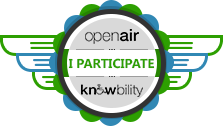Two weeks ago, I wrote about my new friend who is trying to get medical help in understanding her symptoms that she suspects are related to multiple falls and the empathy I felt for her after my own difficult search to find the help I needed to recover after my symptoms following a car accident in which my head went from side to side and back to forward.
I want to post some information that I heard on Webinar sponsored by the Brain Injury Association of America. The Webinair was on Comprehensive Management of Mild TBI by Dr Kevin Crutchfield, MD and Dr Jessica McWhorter, PhD. Dr Crutchfield is the Director of the Comprehensive Concussion Program and Director of the Noninvasive Vascular Laboratories at Mt Sinai Hospital of Baltimore and Dr McWhorter is a Rehabilitation Neuropsychologist at Berman Brain and Spine Institute also in Baltimore I believe.
Before I post more, I want to say that I am a big fan of Dr Crutchfield. I attended a seminar that he was also a participant in, and I introduced myself to him because I was so impressed with his questions for the speakers. Later, when I had another concussion (after the concussion that changed my life and livelihood), I traveled up to Baltimore from Northern Virginia to see him for a second opinion when I my new symptoms were not resolving. He validated the need for a new sleep test and had several other suggestions. His referrals helped my life enormously. And he has helped a number of people that I have sent up to Baltimore, for a second opinion, in life changing ways.
I also want to say that he is by no means the only doctor that does comprehensive care for mild traumatic brain injury. I am posting because his webinair had slides that said what comprehensive care is. Since I had so much trouble getting to comprehensive care, and since I meet so many people who do not get comprehensive care initially–or who, like me, do not even know what comprehensive care after mTBI is– I wanted to post what it is.
This morning I heard the statistic from Dr Cheryle Sullivan that roughly 80% of people with TBI don’t get to treatment at all. Much less comprehensive care. And many people that I meet, thought that they were getting comprehensive care when they went to their doctor, because surely their doctor knew about concussion. Later they found out, when they are not getting better, that they may not have gotten all the care that they needed.
One of the many objectives of the Webinair was to identify the essential elements of a comprehensive approach to mTBI.
I want to include information from the medical part of the discussion in this post. I wish that I had had a comprehensive evaluation when I first had my injury in 1997. Brain injury treatment has advanced tremendously since that time. When I think about what I wanted to know it was what comprehensive treatment for mTBI was.
So here in 2014, I want to know that I have stated what I believe is good information about what to look for in treatment. I struggled many years with symptoms that I believe I would not have had to struggle with had I gotten to comprehensive treatment early on. I believe I am correct about making that statement because when I finally got to most of the treatments discussed, they helped me. Earlier treatment is thought to be more cost-effective and faster than later treatment according to researchers.
I also want to say that many of the people that I meet through my public speaking and through my advocacy have not been evaluated comprehensively and are grateful for knowledge of what kinds of diagnoses have been helpful to my recovery and others, and what kinds of treatments are available so that they can recover further and move their lives forward as best as possible.
In the Webinair, Dr Crutchfield, a neurologist by training, presented and discussed the following information:
Diagnostic evaluation should include:
-concussion scale
-neuro-ophthalmology (which includes vision therapy (added from my notes by ASF))
-referral to a mTBI program
-sleep test and referral
–physical therapy
–speech therapy
–cognitive therapy
–EEG
–Imaging
Source: Comprehensive Management of Mild TBI, slide number 22. Dr Crutchfield, Life Bridge Health and Mt Sinai.
My layman’s understanding of a diagnostic evaluation is that the Doctor should consider all these possibilities and should pursue evaluation if the symptoms presented warrant it. For example, an EEG might be done is seizure is a possibility but not done if seizure is not a possibility.
Since I am translating this information for the non-medically trained I want to present a second slide about what is treatable.
The slide is:
What can we Treat?
When rest alone provides no relief.
–sleep disturbance
–headaches
–visual disturbance
–mood alterations
–behavioral alterations
–vertigo
–imbalance
Source: Comprehensive Management of Mild TBI, slide number 28. Dr Crutchfield, Life Bridge Health and Mt Sinai.
I will reach out to BIAA to find out is the Webinair is available for viewing and how one views it. I reached out to Drs Crutchfield and McWhorter about their webinair last week and I hope to hear back from them. I have questions for them and I will report back. And in my next posts, I will post more about the concrete ways that comprehensive management would have helped me. I also want to discuss that comprehensive management of mTBI by doctors and health professionals is also a goal of the Ontario Neurotrauma guidelines that I have posted earlier. www.onf.org.


Recent Comments